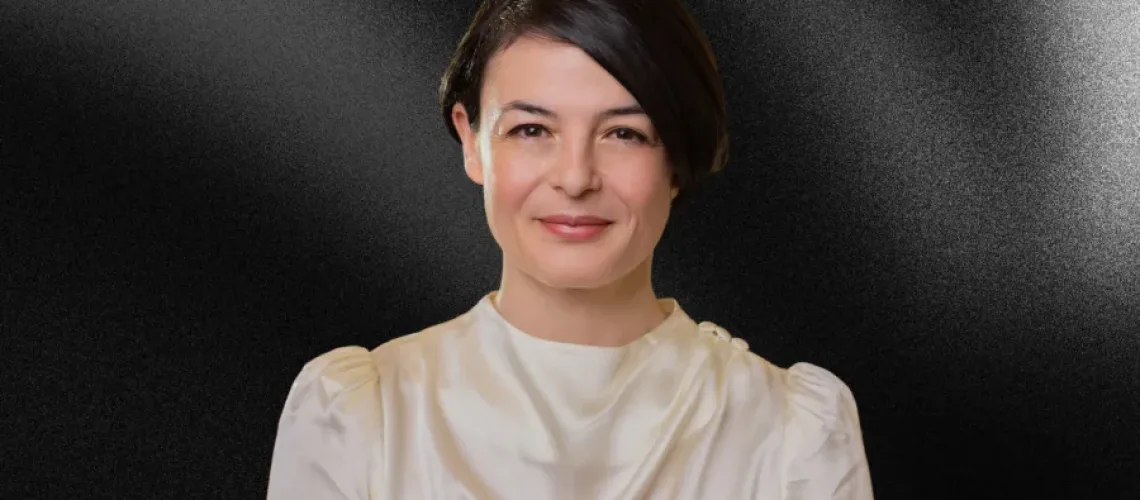Although family offices are still relatively rare in Europe compared to the US, that’s changing—especially as more first-generation founders cash out and turn to structured wealth management.
After more than a decade advising two wealthy families—one Indian-American, the other German—Angela De Giacomo now serves as CIO of Evalue Family Office, managing the fortune of German tech entrepreneur Thomas Falk. With deep roots in venture and adtech, Falk sold his company to Google and now backs early-stage startups with conviction. De Giacomo’s role gives her a close-up view of how modern wealth creators think differently—and why venture capital plays a central role in that mindset.
Her perspective features in Money in Motion, a new report on high-net-worth individuals in Central and Eastern Europe.
Why Family Offices Lag in Europe
Despite growing numbers of ultra-wealthy individuals, Europe still sees fewer family offices than the US. For De Giacomo, it’s largely a matter of scale: “Professionalising a family office typically makes sense only once you cross the €100M threshold,” she notes. Below that, the cost of a full in-house team can be hard to justify.
Still, for those who do establish a family office, the benefits are substantial—greater control, tailored strategies, and the ability to act independently of traditional wealth managers.
Entrepreneurial Wealth Means Entrepreneurial Thinking
A common thread among her clients? They earned their wealth themselves. “Both families I’ve worked with are first-generation wealth creators,” De Giacomo explains. That entrepreneurial background naturally influences how they make decisions—leaning toward growth rather than preservation, and staying hands-on with capital allocation.
Venture Capital: High Risk, High Reward
At Evalue, venture capital isn’t a satellite asset—it’s central. The office holds 30 to 40 direct startup investments, plus a similar number of VC fund positions. Seed and Series A rounds are a particular focus, with the office seeking transformative upside in early-stage companies. Later rounds like Series B or C are approached more selectively, balancing lower risk with a smaller set of holdings.
“You need patience and portfolio resilience,” De Giacomo says. “A number of these investments won’t make it. But the ones that do can far exceed returns from other asset classes.”
Access is Everything
Backing startups is one thing—accessing the best ones is another. For Evalue, Falk’s track record as a founder and venture fund co-founder helps open doors to high-quality deal flow. “The pipeline was never an issue,” De Giacomo notes. In contrast, the Indian-American family she previously advised had to build credibility from scratch—attending events, forming founder relationships, and proving their value as investors.
In venture, she adds, trust is the currency. “If you’re known for being difficult or short-term, you’ll quickly lose access.”
Why the US Still Leads on Returns
Although Evalue reviews global opportunities, most of its venture exposure is in the US. Why? The exit environment. “That’s where acquisitions happen,” she says. In regions like India or Europe, despite abundant talent, buyers are often more inclined to build than buy—limiting exits and, by extension, returns.
There is some exposure to CEE via a single VC fund, but it’s a small slice of the overall portfolio.
Balancing Growth with Stability
Beyond venture, the office invests in real estate, private equity, private debt, and public markets. Real estate is the second-largest allocation, offering a long-term anchor alongside higher-risk holdings.
By contrast, the Indian-American family she advised previously took a more traditional approach—focusing on public markets and real estate, with limited exposure to venture or private debt.
The Road Ahead
As more European founders transition from operators to allocators, the number of institutionalised family offices is poised to grow. But De Giacomo is clear: it’s a long game.
“You need capital, patience, and a network. If you want to go beyond wealth preservation and actively shape your legacy—especially through direct venture—you have to earn your place in that ecosystem.”




